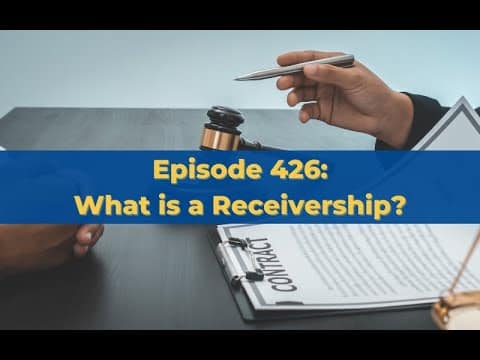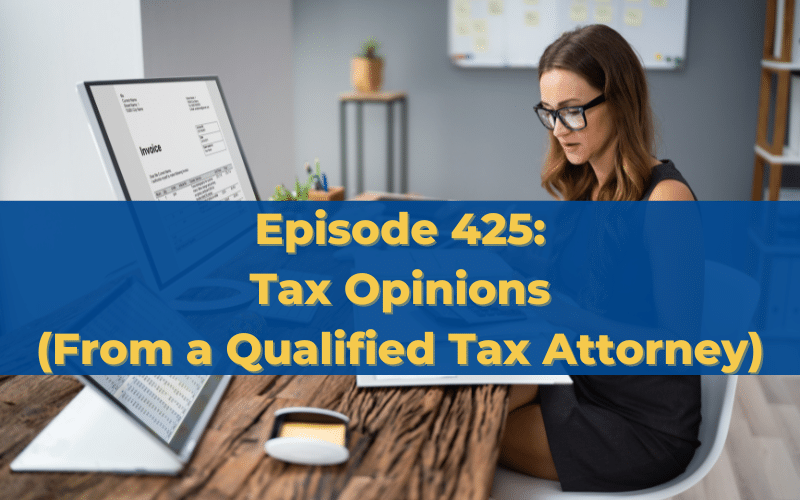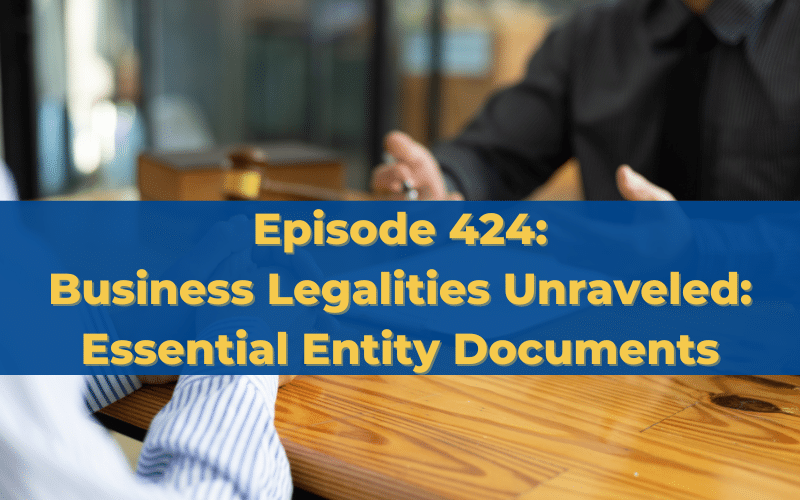Podcast: Play in new window | Download | Embed
Subscribe Apple Podcasts | RSS | Subscribe:
A receivership is a legal process through which a “receiver” (or trustee) is given limited control over an individual’s or entity’s assets in order to protect those assets and ensure they can be used in transactions with creditors.
Receiverships are typically requested by creditors and ordered by the court, though they may be established by a regulatory body, such as the FDIC, or requested by a private party. The court may also appoint a person as the receiver when ordering the receivership, but not always. In some instances, the court may request the parties involved to agree on a receiver, who then steps into the role.
When Is a Receivership Needed?
Receiverships are usually requested by a creditor seeking payment from a borrower in default. Once requested, they are authorized through a court order or an order through a regulatory body. Creditors ask for a receivership in order to protect the assets owed to them.
Other instances when a receivership may be required include:
- During a bankruptcy case – During bankruptcy proceedings, the court may appoint a receiver to manage the bankrupt entity’s assets and oversee their liquidation. By entrusting the assets to a receiver, creditors know their interests are protected by an independent third party.
- When an entity’s principals cannot negotiate a decision – If partners or shareholders dispute the ownership of assets within the entity or cannot otherwise come to an important business-related decision, they may request a receivership. In this instance, the receiver acts as an impartial manager for the entity’s assets while its principals work through their disagreement. This is common for businesses heading toward bankruptcy and in the process of liquidating assets.
- When mismanagement of a trust or estate is suspected – Receiverships may necessary in the case of family disputes over the management of trusts or the assets in a decedent’s estate. Parties who suspect trust or estate assets are being misused or not allocated according to the grantor’s or decedent’s wishes may motion the court to appoint a receiver to manage the assets according to estate documents or private agreements.
- When a company has acted fraudulently – If a company is suspected of fraud, a government regulator may order a receivership to prevent assets from being lost or hidden from creditors. When a receiver is appointed during a fraud case, they may be given expanded powers to discover litigation and attain financial documentation.
What Can a Receiver Do with the Assets They Are Trusted With?
The court (or regulator) dictates the terms of the receivership upon its creation. Among these terms are the powers granted to the receiver, which may include:
- Making any decisions allowed under an entity’s charter, articles or bylaws or allowed by any previous agreements or estate documents
- Taking any actions deemed necessary to manage the company’s business affairs
- Purchasing or leasing vehicles, equipment or other materials necessary to run the business
- Making payments to creditors
- Making any payments necessary to preserve the receivership’s assets
- Borrowing funds to maintain the company’s operations
- Engaging in legal action, or responding to legal action against the business
- Paying out – or cease paying out – dividends to shareholders
- Redistributing disbursements to beneficiaries per agreement and court order
In the case of a receivership of business assets, the company’s original owners remain the material owners of the entity, but their powers are greatly limited once a receivership is instituted. In the case of a trust or an estate, the powers of the trustee or executor may be greatly limited or temporarily removed during receivership.
What Are the Receiver’s Responsibilities?
Receivers are expected to act as good stewards for the assets they are trusted with. This includes:
- Making decisions that protect the assets and property
- Observing concepts like fair market value (FMV) when liquidating assets
- Ensuring a company operates within the bounds of all government regulations
- Collecting funds from asset liquidation and pay out creditors
- Help steer the entity toward a period of recovery
- Observing all provisions in the court order authorizing the receivership
Receivers are empowered by the courts to essentially act as the entity’s primary decision maker, but this comes with major responsibilities.
Qualities to Look for in a Receiver
Receiverships consolidate a great deal of decision-making power into a single individual. Given their role, receivers should bring the following qualities to the case:
- Prior experience as a receiver – Receiverships demand a breadth of skills (accounting, business management, communication, legal) that are difficult to find in a single person. If an individual has proven themselves in prior receivership roles in the past, they will be better prepared to manage future receiverships. Our staff includes accounting and legal professionals who have performed in receivership roles for decades – including receiverships where judges sought us out in particular.
- Legal experience – Receivers must be certified accountants before they can take on a receivership position. However, some receiverships involve complex legal matters like executing or responding to litigation. Receivers are also expected to observe all applicable regulations when making their decisions, and these regulations may have legal consequences. A receiver who can provide specialized legal knowledge can consider the financial and legal consequences of every decision.
- Trustworthiness – Receivers may have considerable latitude in how they manage a company’s affairs. They must also serve as an impartial third party. Trust is an important quality in a receiver as they must put aside their personal biases when acting in the role. The courts will look for an established accountant or attorney – preferably one with past receivership experience – to ensure the receiver is trustworthy.
- A steady demeanor – Receivers are frequently thrust into the middle of situations where emotions are running high. Shareholders may hotly contest which assets to liquidate if they are facing bankruptcy. There may be legal action between the entity’s principals, so their legal teams may not even get along. Receivers are expected to manage these emotions as they make the best decisions for the business.
Receiverships Are a Powerful Solution for Protecting Assets and Creditors
Receiverships are a valuable asset-protection tool and can resolve deadlocks that may hold up bankruptcy proceedings, fraud cases, or internal disputes within a company. Though typically court-ordered, receiverships are also appropriate for private parties looking for an impartial, expert asset manager while important decisions are negotiated.
If your case requires a knowledgeable receiver that offers accounting and legal expertise, the May Firm can provide receivership services grounded in decades of experience.


